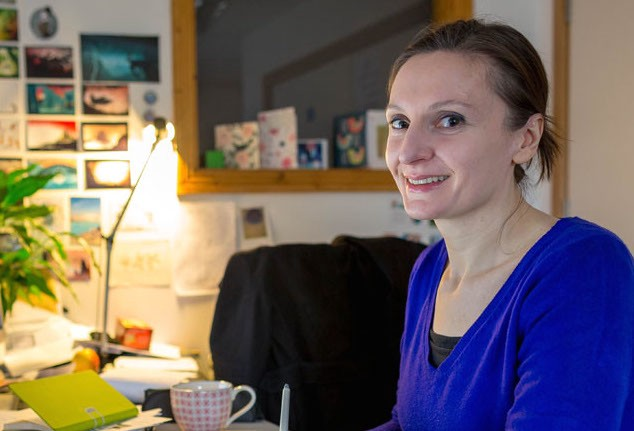In 2016 women represented only 13 percent of the writers on the top 250 films, and according to 2015 research, women comprise only 10 percent of animation directors and producers. Obviously Hollywood’s misogyny problem is no secret, but it’s hard to appreciate just how systemic it really is until you consider the data. Or hear from the women themselves.
In separate conversations, The Hollywood Reporter spoke with screenwriters Lindsey Beer (“Barbie”), Geneva Robertson-Dworet (the new “Tomb Raider,” “Captain Marvel”), and Amanda Silver (“Planet of the Apes” franchise), and with animation filmmakers Nora Twomey (director of “The Breadwinner”) and Lori Forte (producer of “Ferdinand”) about how women are treated in the industry. During their chats, the women revealed the difficulties of writing female characters while adhering to (male) executives’ notes, and discussed the importance of inclusivity and encouraging other women in their fields.
Here are some of the discussions’ highlights:
On men giving notes about female characters:
Robertson-Dworet: “I got really frustrated with a male director because he kept saying, ‘I just want her to be a normal girl.’ Male executives and filmmakers are still scared to give women warts — to give a woman the same specificity they’d give a male character.”
Beer: “With female characters, I always get the note that they need to be ‘likable.’ They will say she seems like a — well, they won’t say the B-word, but they imply the B-word. A female character can’t have a chip on her shoulder the way a man can. We have so many lovable male protagonists that are the grumpy antihero, but that character as a woman is hard to push through.”
On the persistent double standards:
Silver: “Growing up, we all had favorite movies that were made by and starred men, but you squint and take on the male point of view and you enjoy it. It should work in the reverse. The female heroine should be allowed to be just as relatable for everybody, which means she will be flawed.”
Beer: “Female characters also need to have motivations that aren’t just a man or children. I know a male screenwriter who said he could think of 300 motivations for his male character, but all he could think about for his female character was that she had kids to go save. It’s just a subconscious bias. I fall into the same thing.”
Robertson-Dworet: “[Male stars] can be into their 50s, but you are going to have a hard time selling the studio on making a $120 million action movie with a 45-year-old actress. You have Liam Neeson, but you would never have people say, ‘Judi Dench should really star in this action film.’”
On encouraging women:
Twomey: “Certainly, on ‘The Breadwinner,’ I noticed that I was using women in certain departments where I knew they could do the job brilliantly, but I also knew there was a level above that where they could also move into. But I knew to hold things together, I’d like them to stay in that role, which is terrible, and I shouldn’t do that and they shouldn’t do that. We should make sure that people can move up and feel the pain, the production pain. Your film might not be as good because you’ve made a hole down here and you’ve moved somebody up here. I think that kind of encouragement is necessary. Just to use an example: I asked one of the women I work with to do something that was outside of her job description, and she felt she wouldn’t do a good job with it. But I was pressed for time. I asked her to please do it anyway, and she did a magnificent job.”
Forte: “We’ve always looked for females, because the balance between females and males in our departments, especially story and animation, is really crucial. But we haven’t been able to find as many women who are out there, looking to come to us.”
On what needs to change:
Silver: “You can’t really define the ‘female perspective,’ but simple math tells you that if more women are writing and directing, a female perspective will emerge.”
Beer: “In general, studios need to be less risk-averse. You give a female a chance, and you get “Wonder Woman.” You give diverse voices a chance, and you get ‘Get Out.’”
Twomey: “It’s just not realistic for line producers to think that you can work seven days a week, or expect people to work seven days a week, 24 hours a day and kill yourself in a production, and then start again. We have to be really realistic about how much time is healthy for people to spend on a production, because otherwise we won’t attract women into animation, into the director roles. Anybody who wants to have any kind of a balance in their life is not going to be attracted to directing.”
Forte: “There’s just not a lot of women directors. There’s not a lot of women producers. There’s a lot of women executives in the studios, but they’re just not coming to the creative positions. I’m not sure I know the reason why there are not enough women directors or producers or line producers or animators.”
Head over to THR to read the entire discussion with Beer, Robertson-Dworet, and Silver, and the roundtable including Twomey and Forte.







